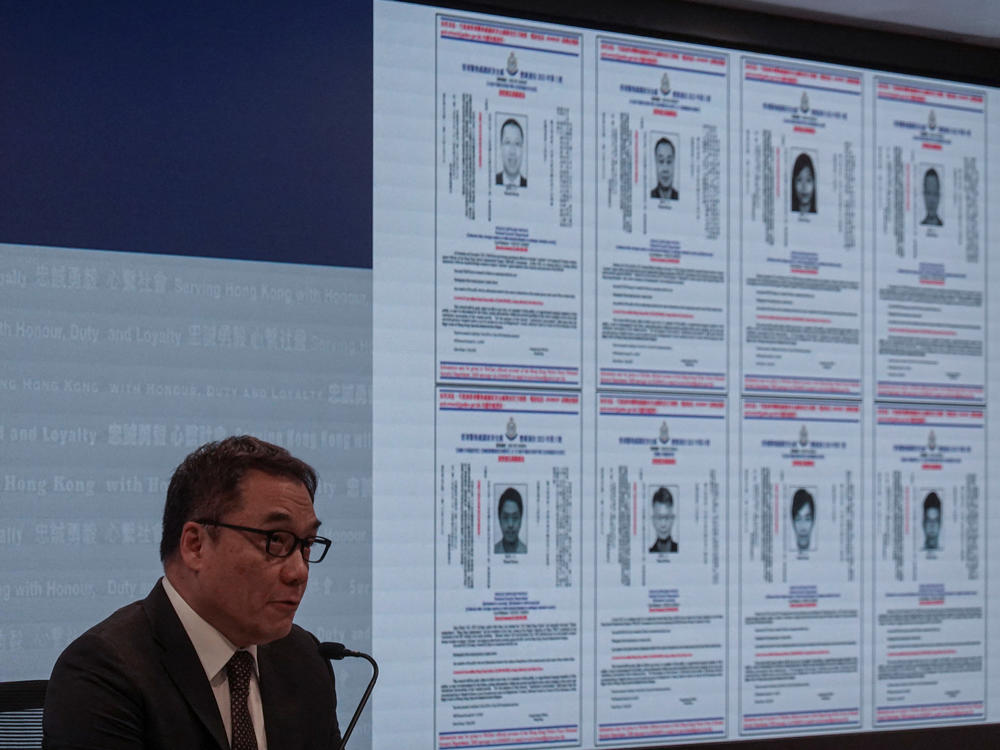Section Branding
Header Content
Hong Kong police issue arrest warrants for 8 political activists living in exile
Primary Content
TAIPEI, Taiwan — Hong Kong has issued arrest warrants for eight exiled activists and lawyers, accusing them of violating China's national security law — and offering a hefty bounty for their capture.
Among the eight people Hong Kong's national security police say are wanted for "collusion with foreign forces" are activist and former legislator Nathan Law, now in exile in the U.K.; former lawmaker Ted Hui and legal scholar Kevin Yam, both in Australia; and Anna Kwok, the director of a pro-Hong Kong advocacy organization based in Washington, D.C.
Responding to his arrest warrant, Law said the charges "are classic examples of abusing the concept of 'national security,' pushing its definition to an extreme to suppress dissident voices." He also said that he has not accepted foreign government funding.
At a press conference on Monday, Steve Li Kwai-wah, the superintendent of Hong Kong's national security department, said those on the wanted list "have encouraged sanctions ... to destroy Hong Kong," despite living in exile. The charges against them could carry a maximum of life imprisonment.
"They have committed very serious offenses that endanger national security," Li said, adding that the government is offering 1 million Hong Kong dollars (about $130,000) each for information leading to their arrests.
Under China's national security law on Hong Kong, passed in response to mass anti-Beijing protests in 2019, most of Hong Kong's opposition and civil society leaders have been arrested or gone into exile.
According to the Hong Kong police, 260 people have been arrested under the national security law, with 79 of them convicted.
In recent days, China has tightened legislation to safeguard its national security. Last week, Beijing passed a sweeping foreign relations law, which threatens countermeasures against those seen as harming China's interests.
On Friday, the U.S. State Department updated its China travel advisory, recommending Americans reconsider their travel plans to China. "The People's Republic of China (PRC) government arbitrarily enforces local laws, including issuing exit bans on U.S. citizens and citizens of other countries, without fair and transparent process under the law," the advisory says.
Copyright 2023 NPR. To see more, visit https://www.npr.org.

